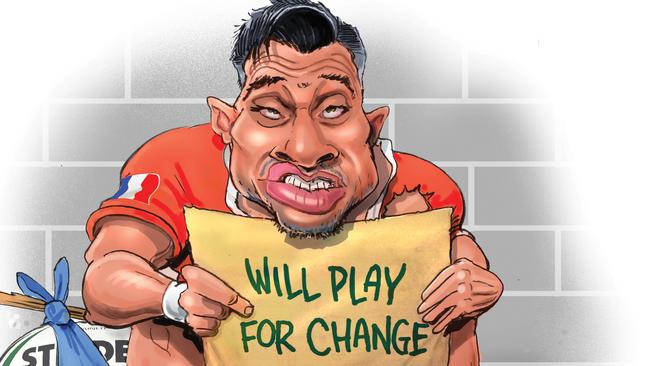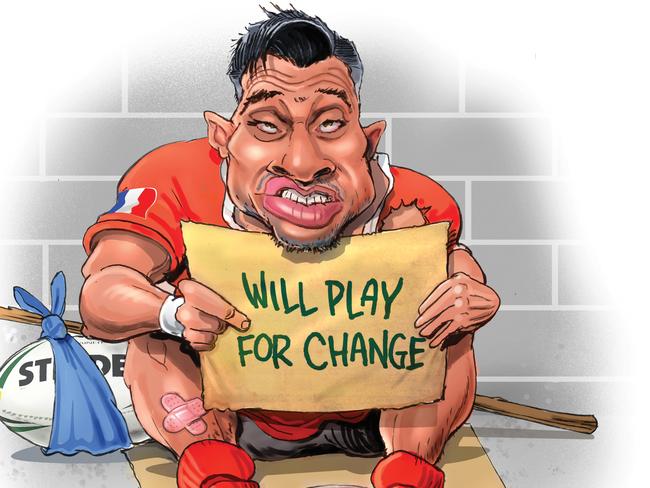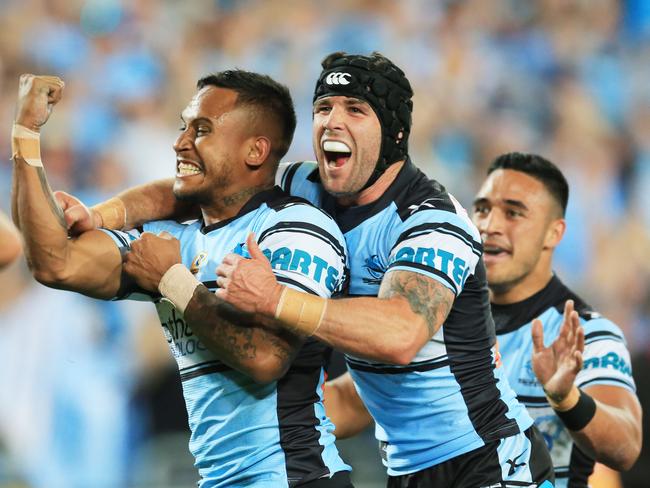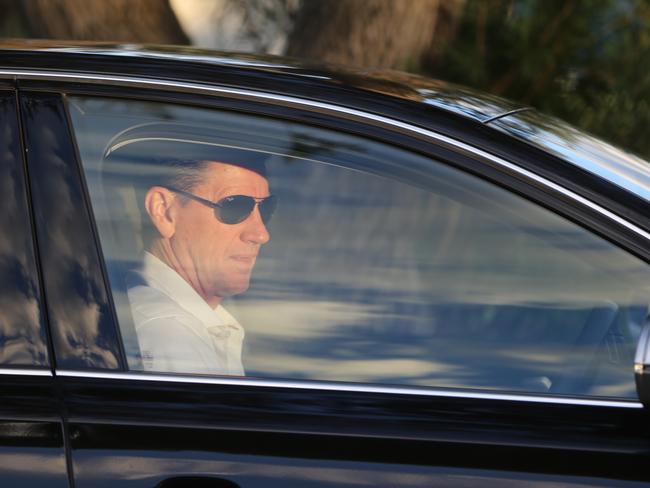Lack of interest in Ben Barba by NRL clubs show they are fatigued by the constant headlines
AFTER a week of drugs scandals, Ben Barba has announced his intention of returning to the NRL, but clubs are steering clear of the premiership winner.

NRL
Don't miss out on the headlines from NRL. Followed categories will be added to My News.
IN the same week a club chairman is arrested for allegedly possessing cocaine, two Test players confess to it and a third denies the police charges against him, here comes Ben Barba, last seen ducking a 12-match suspension for two drug positives and announcing an intention to return to the NRL.
Never say rugby league has lost its sense of humour.
Almost immediately Cronulla coach Shane Flanagan shut off speculation of Barba returning to Cronulla. The position was now Valentine Holmes, he said.
Smart move.
Barba’s other former club, Canterbury, quickly followed. No thanks.
No other club has yet shown interest.
The lack of interest in Barba is in great contrast to the feelings towards the Rep Round Four who, to a man, have received support and a sympathetic hearing.
The contradictions have shown the truth of it, though.
KENT: Why the Panthers need Cronk
LATE MAIL: Broncos star fails fitness test
ORIGIN: Farah’s last laugh but Buderus wants change

Everybody is confused.
Barba, though, might finally be exposing the NRL’s true conscience.
Clubs are showing signs of fatigue at the constant headlines and headaches despite the solid shows of support around the game for the Rep Round Four.
In many ways there is no choice.
Hearts are already attached. The heart and the head have been driving argument within the game for more than a week. Each equally as right, each equally as wrong.
The coolness towards Barba, where there is no attachment so no heart, is speaking in actions louder than anything anybody can say.
Sign Ben Barba?
Infinity Group tore up its $700,000 contract with Cronulla _ after chairman Damian Keogh got arrested last Friday and then under-20s player Jesse Savage on the Sunday _ after tearing up its $150,000 contract with the Sydney Roosters after Shaun Kenny-Dowall went the previous Thursday.
Barba walked away from the game in February when he refused to accept a 12-week ban for a second drug positive, saying the old line, he “needed to do what’s right for his family”.
Why he didn’t think of that same family when he was snorting drugs, risking a $600,000-a-year contract in what turned out to be one of the more boneheaded decisions of our time, is one of life’s unanswered questions.
But is Barba the lesson we have yet to learn, or the anomaly?

Last year the NRL announced it would step up drug testing on Mad Mondays, an annual event where it has been known to snow like a northern Christmas. They did this after more than 20 players tested positive the season before.
There was nothing secretive about it. The NRL sent an email warning clubs.
Barba got busted, anyway.
Worst of all, he went second time around because he was one of those 20-odd players a year earlier.
Try figuring that out.
Barba is the second player to record a second positive test. It guaranteed a 12-week suspension and a fine.
It raises an argument nobody has properly answered.
And it just might be the key.
Were more than 20 players caught because they knew they essentially had a Get Out of Jail Free card for a first offence and so rolled on, carefree and careless?
Only two, so far, got caught daring to go a second time.
Is it possible to conceive that if the second strike punishment was rolled forward to become the first strike offence, then those roughly five to six per cent of NRL players caught on Mad Monday would dramatically reduce?
Players might be smarter than we are giving them credit for. They might need only a gentle push from the NRL to take greater responsibility instead of the soft.
It appears players, who know the testing windows intimately, are mostly adept at avoiding the second strike.

Adding to Barba’s problems is speculation the NRL will not view him as damaged goods so will insist he is included in any salary at the same value he left the game at, up around $650,000 a season.
Clever work from the NRL.
They are saying if a club wants him they will have to want him for the right reasons, not a bargain pick-up brought in for minimum wage that could work out but is easily expendable if he is not.
It makes the club accountable.
The NRL needs to continue here, though. It needs to figure out what it stands for and stand on that ground.
Somewhere in all those dusty management guides lies the story of Paul O’Neill, who took over as chief executive of American aluminium company Alcoa in 1987.
At his first meeting with investors they wanted to hear O’Neill’s plans for revenue and profit and growth, all those things now causing concern within the NRL community.
O’Neill spoke of none of that.
He spoke of work safety, nothing else, and it was genius.
“You can’t order people to change,” he later said. “So I decided I was going to start by focusing on one thing. If I could start disrupting the habits around one thing, it would spread throughout the entire company.”
They call it focusing on a keystone habit and, the next year, with workplace accidents down, workers were happier, unions were happy, production went up and so did profits.
So far we have heard nothing concrete from the NRL about its plans, just a lot of white noise about being disappointed and there being no place for drugs and on and on it goes ...
This, at a time the game is negotiating its Collective Bargaining Agreement with the players association.
Could the opportunity be any greater?



